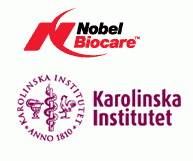
Nobel Biocare refuted criticism voiced by Swedish scientists, saying its implant product `teeth-in-an-hour` is a scientifically proven concept with high success rates. The Swiss-Swedish implant maker said that one of its `ongoing studies with 19 patients and a total of 118 implants shows that after three years, 96.3 pct of all implants still function`. The complete report will be available in April, it said. The group`s statement came in reaction to a study by Sweden`s Karolinska Institute published on Saturday








